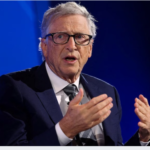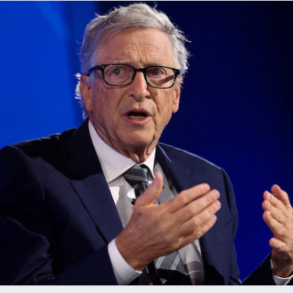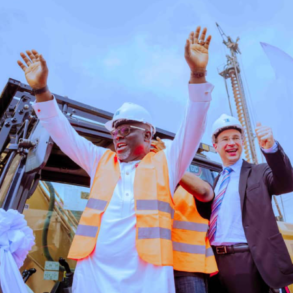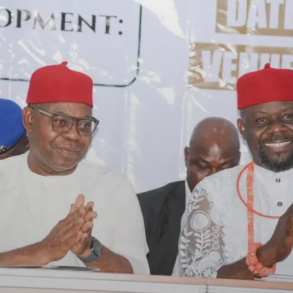Afimag.com –
Africa’s richest man, Aliko Dangote, recently, launches a $20 billion refinery to resuscitate Nigeria’s oil industry.
This will save the country huge forex that would have been spent on fuel importation.
According to Dangote, the first products from the refinery that has already accommodated over 33,000 employees will hit the market towards the end of July this year,
Commissioned on May 22, 2023, by the immediate past President Muhammad Buhari, who expressed joy over the execution of the project, Aliko Dangote partly financed the construction of the 650,000 barrels per day Dangote refinery.
The refinery is considered a ‘game-changer’ in ending the country’s fuel imports.
Situated at the Lekki free trade zone area of the commercial hub Lagos, the $20 billion refinery established by the Dangote Group aims to produce up to 53 million liters of gasoline per day, as well as 4 million liters of diesel and 2 million liters of aviation jet fuel daily.
At the event, Dangote described the refinery as the world’s largest single train refinery, adding that the refinery will solve some of Nigeria’s petroleum issues.
Despite being an oil-producing nation and one of Africa’s largest oil producers, Nigeria lacks the capacity to refine its oil. The present and past leaders of the country only set their tongues wagging on refurbishing the nation’s refineries.
The federal government continues to destroy what it regarded as illegal refineries in the country rather than upgrading and legalize the perceived oil industries.
According to OPEC, between 2015 and 2019, the cost of importing refined petroleum products exceeded the exports by $58.5 billion,
Challenged by Nigeria’s lack of refining capacity presents many challenges such as spending billions of dollars on imports yearly and exposure to disruption of domestic fuel supply, Dangote said There will be constant availability of high-quality fuels for our transportation sector, the refinery will also make available to our industries vital raw materials for a wide range of manufacturing.
Investigations show that about 50% of the funds committed to the refinery came from Dangote’s equity investment while the other half came from debt finance from banks such as Access and Zenith banks.
The refinery at Lekki Free Zone, occupies a 16,500-hectare free trade area, the masterplan for which also contains a proposed airport, a start-up community, and commercial and residential areas.
Reacting to the development, the Governor of Central Bank of Nigeria (CBN), Godwin Emefiele said the refinery will meet Nigeria’s domestic fuel consumption.
Ghana’s President Nana Akufo-Ado, described the Dangote refinery as a “spectacular project” which “makes West Africa better and stronger.”
The refinery size is seven times the size of Lagos’ Victoria Island, sitting on over 2000 hectares of land.
The former governor of Ogun State, Ibikunle Amosun, while trading words with his successor Dapo Abiodun, for losing hosting of the refinery to Lagos State, said it was a Joint Venture from its conception in 2007.
According to his counter-statement signed by Bola Adeyemi, the Federal Government of Nigeria owned the majority 51%, Ondo State Government (14.5%), Ogun State Government (14.5%), and strategic core investors (20%).
“Alhaji Aliko Dangote, according to the information availed when he took office, subsequently bought, and took over the 20% equity of the core investors,” the statement partly read.








